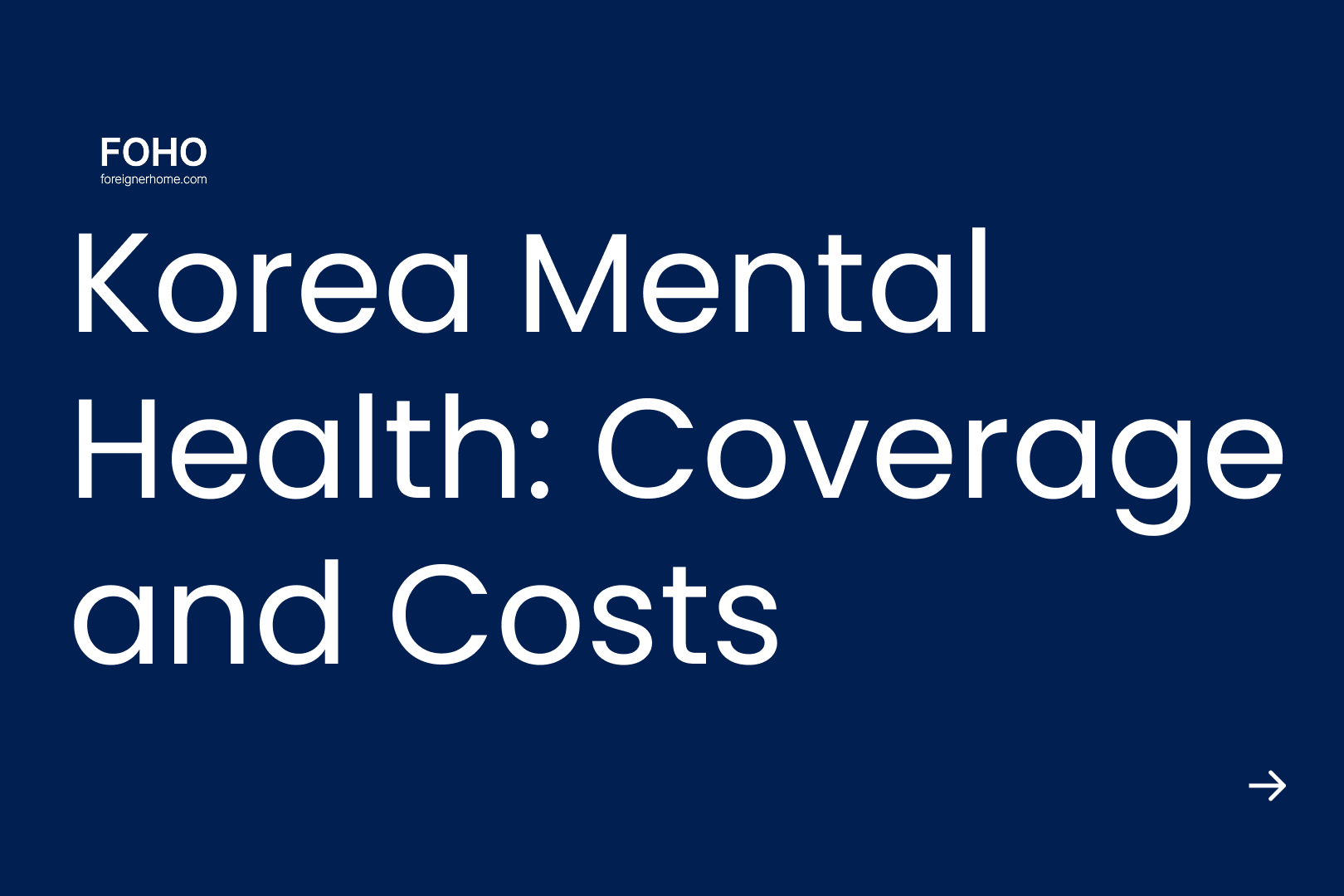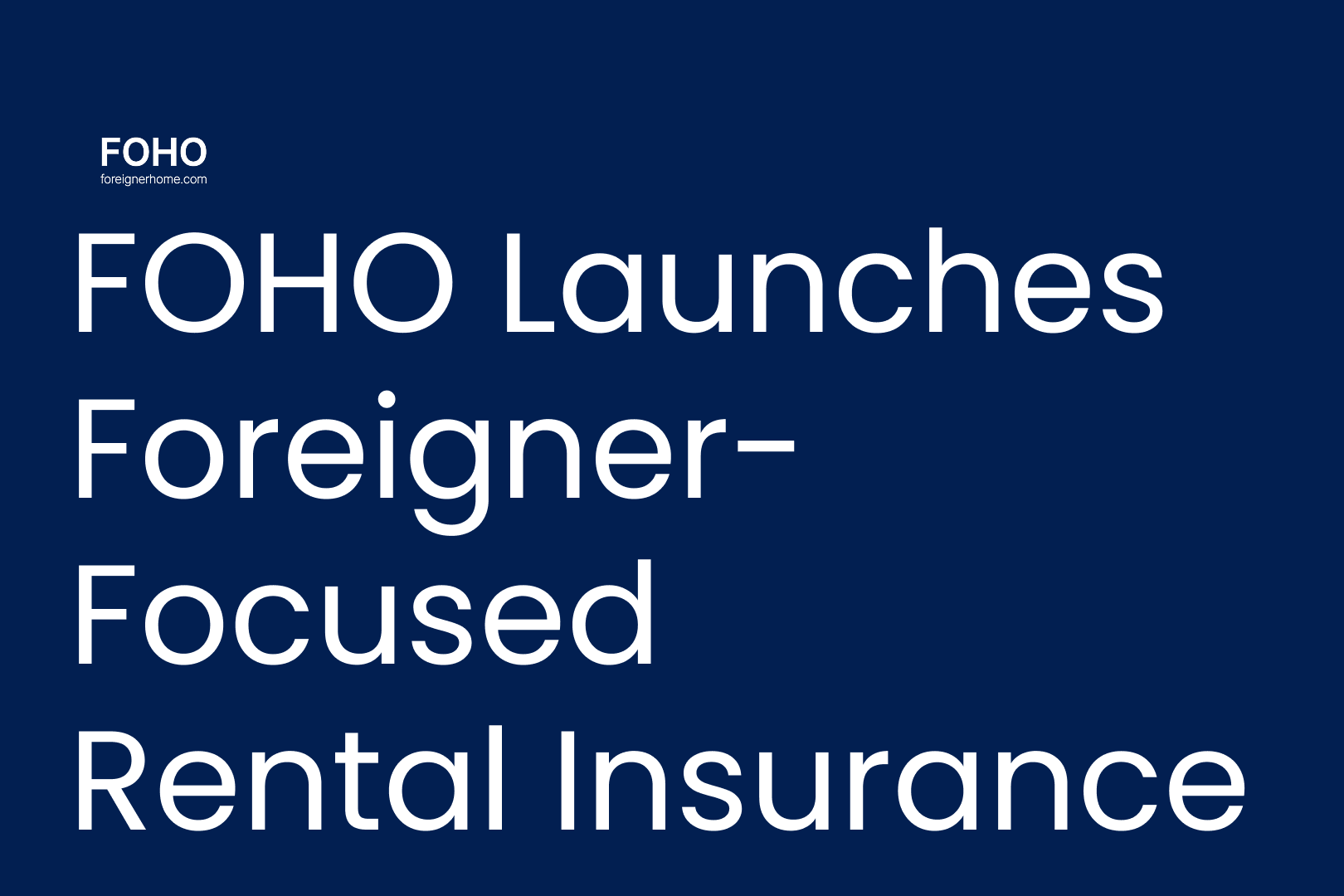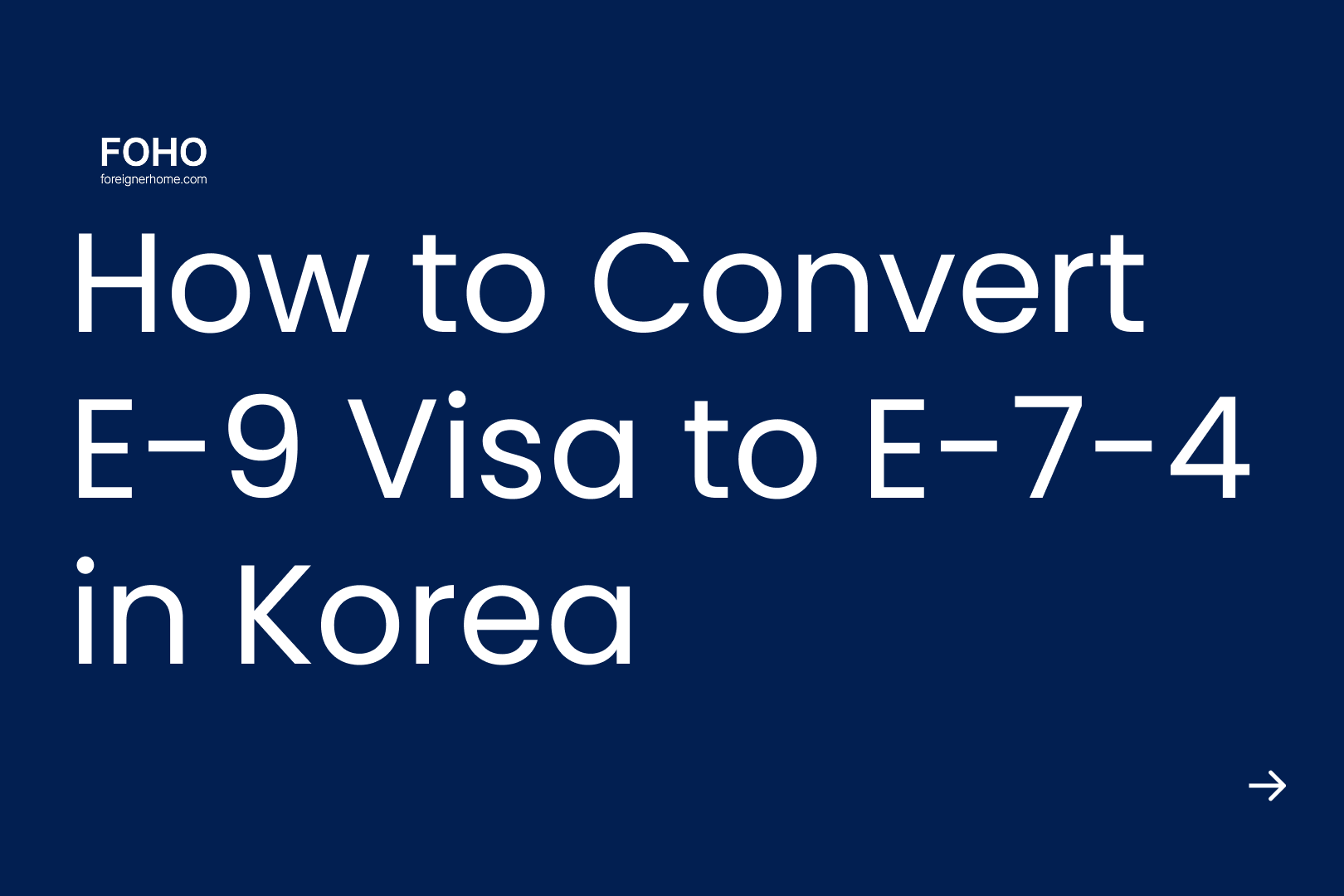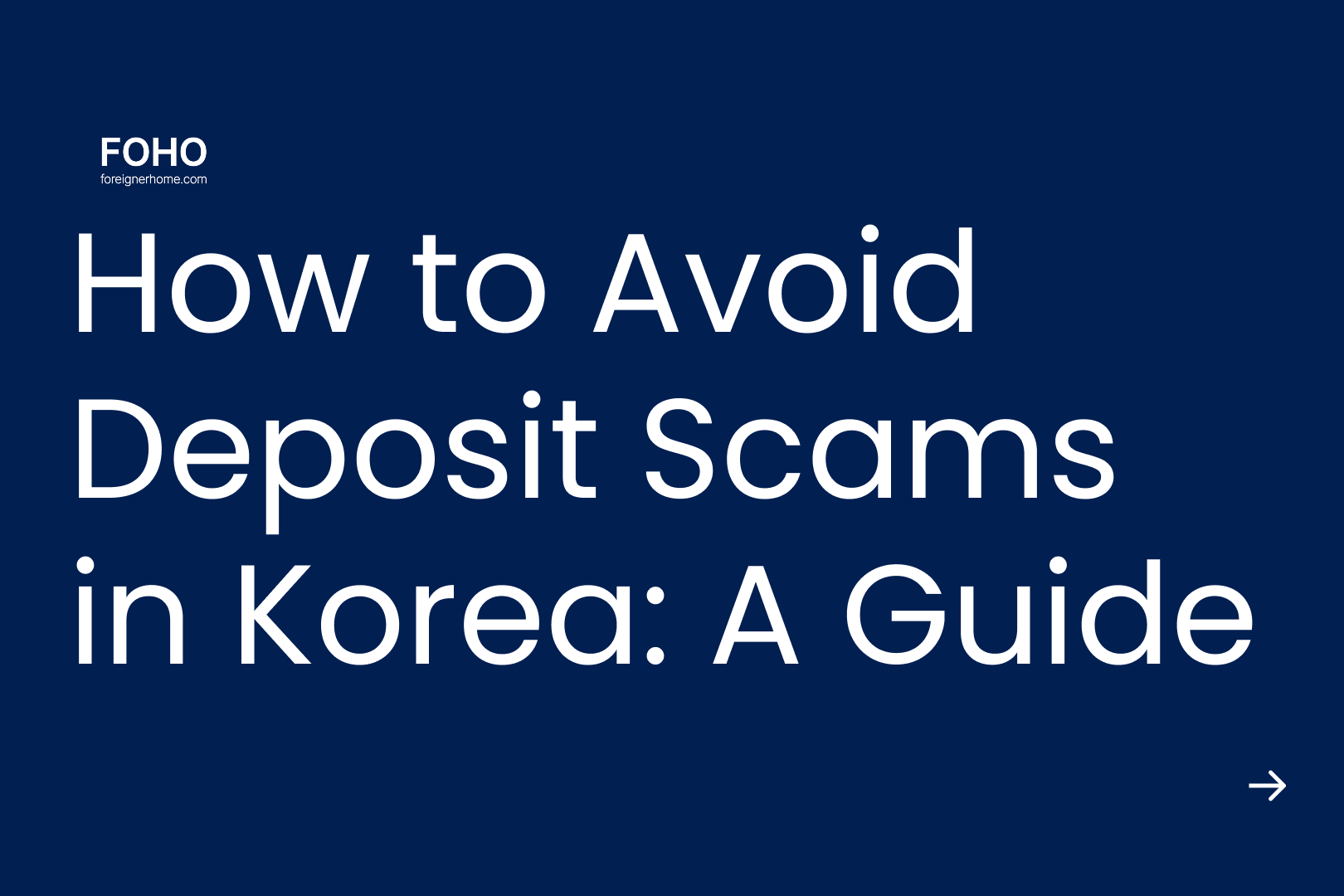FOHO Blog – Global Housing & Living Guide for Foreigners
Korea Mental Health: NHIS Coverage and Costs
Get help with mental health in Korea. This guide for foreigners explains how to use NHIS, find low-cost options, and get medication prescriptions locally.

Table of contents
- 01A Foreigner's Guide to Mental Health in Korea: Finding English-Speaking Care, Using NHIS, and Costs
- •The Most Important Thing to Know: Korea’s "Two-Track" System
- •Part 1: Who to See? Psychiatrist vs. Psychologist vs. Counselor
- •Part 2: How to Pay for Care
- •1. National Health Insurance (NHIS)
- •2. Private & International Insurance
- •3. Out-of-Pocket Costs (Private Therapy)
- •4. How to Find Affordable Care
- •Part 3: Where to Find English-Speaking Help in Korea
- •Part 4: What About Mental Health Apps?
- •Part 5: Practical Logistics You Can't Ignore
- •1. Psychiatric Medications (This is Critical)
- •2. Emergency and Crisis Hotlines
- •Part 6: Understanding Culture, Stigma, and Your Rights
- •Final Takeaway
- •Glossary of Terms
- •A Secure Home is the Foundation for Well-being
A Foreigner's Guide to Mental Health in Korea: Finding English-Speaking Care, Using NHIS, and Costs
The Most Important Thing to Know: Korea’s "Two-Track" System
- Track 1: The Medical System (Psychiatry)
- Who: Psychiatrists (정신과의사). These are medical doctors (M.D.s).
- What they do: Diagnose conditions, manage treatment, and (critically) are the only professionals who can prescribe medication.
- Payment: Covered by National Health Insurance (NHIS). This makes it a very affordable option for diagnosis and medication management.
- The Catch: Your visit is focused on a medical evaluation, which may be brief. It creates an official medical record, which some people worry about due to social stigma (though your records are legally confidential).
- Track 2: The Private System (Counseling & Therapy)
- Who: Psychologists (임상심리사) and Counselors (상담사). Many are foreign-licensed (e.g., from the U.S., Canada, or U.K.).
- What they do: Provide talk therapy, cognitive behavioral therapy (CBT), and support for issues like anxiety, depression, and cultural adjustment. They cannot prescribe medication.
- Payment: NOT covered by NHIS. You must pay out-of-pocket or use private international insurance.
- The Catch: This is the best option for Western-style talk therapy, but it is significantly more expensive.
Part 1: Who to See? Psychiatrist vs. Psychologist vs. Counselor
Professional | Korean Title | Role | Prescribes Meds? | Covered by NHIS? |
Psychiatrist | 정신과의사 | Medical doctor (M.D.). Diagnoses and treats severe mental illness. | Yes | Yes |
Psychologist | 임상심리사 | Ph.D. or Master's. Conducts psychological tests and provides psychotherapy. | No | No |
Counselor | 상담사 | Master's. Provides talk therapy for life, work, and relationship stress. | No | No |
Foreign-Licensed Therapist | (Varies) | A psychologist or counselor licensed in another country (e.g., U.S.). | No | No |
Part 2: How to Pay for Care
1. National Health Insurance (NHIS)
- What it covers: Consultations with a psychiatrist for diagnosis and medication.
- What it does NOT cover: Talk therapy sessions with counselors or psychologists.
- Cost: With NHIS, a co-payment for a psychiatrist visit and a month's supply of medication can be very affordable, often between ₩30,000 and ₩50,000.
2. Private & International Insurance
- Direct Billing: Some clinics are "in-network" and can bill your insurance company directly. You only pay your deductible or co-pay.
- Reimbursement: You pay the full price upfront, and the clinic gives you a "Superbill" (a detailed invoice) to send to your insurance company for reimbursement.
- "Does my plan cover 'outpatient mental health services' in South Korea?"
- "What is my deductible and co-payment?"
- "Do you have any in-network providers in Seoul?"
- "What is the process for reimbursement?"
3. Out-of-Pocket Costs (Private Therapy)
- Ph.D.-level Psychologist: ₩200,000 – ₩380,000 per session
- MA-level Licensed Counselor: ₩140,000 – ₩230,000 per session
- Supervised Intern/Trainee: ₩60,000 – ₩105,000 per session
4. How to Find Affordable Care
- Sliding Scale: Some centers (like Adaptable Human Solutions and You&Me Psychological Services) offer sliding scale fees based on your income.
- Interns: Ask larger clinics if they have graduate-level interns. Their work is supervised by a licensed professional and is a standard, affordable way to receive quality care.
- Government Centers: The Seoul Global Center and Seoul Foreign Resident Center offer free counseling.
- University Centers: If you are a student, your university counseling center is your best first stop (e.g., SNU, Hanyang, Konkuk). These are almost always free.
Part 3: Where to Find English-Speaking Help in Korea
Center Name | Location(s) | Services | Who They Are |
Seoul Counseling Center (SCC) | Gangnam, Pyeongtaek | Individual, Couples, Family | U.S. & internationally-licensed therapists. |
Adaptable Human Solutions (AHS) | Jung-gu (Seoul), Pyeongtaek | Individual, Couples, Family | Foreign-licensed therapists. Offers sliding scale. |
You&Me Psychological Services | Mapo-gu (Seoul), Pyeongtaek | Individual, Couples, Assessments | U.S. & Korean-licensed psychologists. Offers sliding scale. |
Couchology | Yongsan-gu (Seoul) | Individual, Couples, Family | Psychologist licensed in Korea, Australia, & Singapore. |
Clinic Name | Location(s) | Services | Who They Are |
Seoul Central Mental Health Clinic | Jung-gu (Seoul) | Evaluation, Medication, Therapy | Korean board-certified psychiatrists (English-speaking). |
Seoul Psychiatry Gangnam | Gangnam-gu (Seoul) | Evaluation, Medication, Therapy | U.S.-trained, Korean board-certified psychiatrist. |
- Seoul Global Center (SGC): Located in Jongno-gu, SGC provides free one-on-one psychological counseling for foreign residents.
- Multicultural Family Support Centers (Danuri): Offers a helpline (1577-1366) and specialized counseling for marriage immigrants and multicultural families.
Part 4: What About Mental Health Apps?
- A Note on "Trest" and "Adaptable" Apps: Our research found no evidence of a counseling app called "Trest." This may be a misspelling. Similarly, "Adaptable" is not an app, but a well-known in-person counseling center (Adaptable Human Solutions).
- International Apps (BetterHelp, Talkspace):
- Pro: You get a therapist from your home country who understands your culture.
- Con: It's expensive, and the time zone difference is a major problem. A 7 PM session in New York is 8 AM in Seoul, which can be difficult to schedule.
- Self-Help Apps (Headspace, Calm):
- Pro: Excellent, low-cost tools for managing daily stress, anxiety, and sleep.
- Con: They are not a replacement for therapy with a licensed professional.
- Korean Apps (Mind Cafe, Maro):
- Pro: A growing local market with innovative tools.
- Con: Almost 100% in Korean. They are not a practical option for most non-fluent foreigners.
Part 5: Practical Logistics You Can't Ignore
1. Psychiatric Medications (This is Critical)
- To get meds in Korea: You MUST see a licensed Korean psychiatrist (M.D.). They will evaluate you and write you a new, local prescription. Plan this appointment before you run out of your supply.
- Bringing medication into Korea: This is strictly controlled.
- Contact MFDS: Before your flight, you must email the Ministry of Food and Drug Safety (MFDS) Narcotics Control Division (narcotics@korea.kr) to get approval.
- Get Documents: You will need your original prescription and a letter from your doctor.
- Banned Substances: Some medications (especially for ADHD) and all CBD products are banned. Do NOT bring them.
2. Emergency and Crisis Hotlines
- Seoul Mental Health Center: 1577-0199
- Emergency Support for Migrant Women: 1577-1366 (Support for domestic/sexual violence)
Part 6: Understanding Culture, Stigma, and Your Rights
- Stigma: There is a strong social stigma around mental health in Korea, which is often tied to a cultural value of not "losing face." This is why some people prefer to pay for private therapy (Track 2) rather than use their NHIS (Track 1), which creates an official record.
- Your Rights: Despite this social stigma, your medical information is legally confidential in South Korea, just as it is in Western countries. A doctor or clinic cannot share your information without your consent.
- Finding the Right Fit: The best therapist for you will be "culturally competent." This means they understand the stress of being a foreigner and the specific social pressures of living in Korea. Don't be afraid to ask them about their experience with expat clients.
Final Takeaway
Glossary of Terms
- NHIS: National Health Insurance Service. The mandatory public health insurance.
- Psychiatrist (정신과의사): A medical doctor (M.D.) who can prescribe medication.
- Psychologist (임상심리사): A professional (Ph.D. or M.A.) who studies and treats mental disorders, often with tests and psychotherapy.
- Counselor (상담사): A professional (M.A.) who provides talk therapy.
- MFDS: Ministry of Food and Drug Safety. The government body that controls the importation of medicine.
- Hwabyung (화병): A Korean culture-bound syndrome, or "anger illness," with physical symptoms caused by suppressed anger.
A Secure Home is the Foundation for Well-being
Settle in faster with FOHO
Browse more verified listings and message landlords in minutes. Lock in your lease with FOHO's secure payments.
Get Foreigner-Friendly Housing Tips
Get the latest news delivered to your inbox.

Nov 4, 2025
FOHO Launches Foreigner-Focused Rental Insurance
FOHO’s deposit insurance protects foreign tenants in Korea from landlord defaults. Stay safe with clear coverage and fast claims.

Oct 31, 2025
How to Convert E-9 Visa to E-7-4 in Korea
A guide for Vietnamese & Chinese E-9 workers in Korea. Learn the E-7-4 visa points system, F-2 requirements, and compare GME vs. Sentbe for remittance.

Oct 30, 2025
How to Avoid Deposit Scams in Korea: A Guide
Avoid deposit scams in Korea with our step-by-step guide. Learn to check property debt, understand the 'Deung-gibu,' and secure your deposit.

Oct 28, 2025
How to Find Community in Korea as a Foreigner
This guide for expats explains how to make friends in Korea. Learn the pros and cons of Meetup, local clubs, and apps like Somoim.
Subscribe to the FOHO newsletter
Actionable housing insights in your inbox.